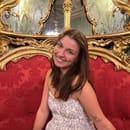While many studios are running out of ideas for original content, as seen by the increase in sequels, they are more frequently turning to adapting their shows and movies from another crucial storytelling medium: books.
In my eons being that one annoying person who points out all the differences between the books and the movie or show, I’d like to think I’ve developed a pretty solid knowledge base for what works well and what doesn’t. And, no, I don’t think a show or movie needs to be 100% just like the original material to work well. Truthfully, that’s an impossible thing to be.
Books and the screen, while both storytelling mediums, each have their limitations in what they can convey, which means we can’t expect shows and movies to be exactly like the source material. The recent Disney Plus adaption of the Percy Jackson and the Olympians novels perfectly threads the needle between providing nostalgia for the readers, accuracy in the narrative and characterization, and improving on the original story. In my slightly (heavily) biased opinion, these are the elements of the Percy Jackson show that make it a successful adaptation, techniques that I think could be carried to any further adaptations.
There will be spoilers ahead so if you haven’t read the books or seen the show, you might want to jump ship.
First, the show was immediately slanted to outdo the movies by bringing Rick Riordan into the writing room. He had one goal, and it is to stay true to the original core of the story. He also knew that while they want the first season to do well, The Lightning Thief is the first book in a series, and they need to be willing to play the long game in terms of setting up events in future books. This means making slight changes to the original material that better the story and strengthen certain characters.
In the original Lightning Thief book, Grover, while delightful, is a mostly flat character. In the show, they take advantage of not being limited to only Percy’s point of view, and start to set up his own separate storyline, having him pry information from Ares while also hinting at his search for Pan that will be the catalyst for the events of book two.
The next essential thing they did right is that while sticking to the original essence of the story, they were able to change moments that didn’t work and make sure plot points made sense. For example, the books had Percy falling from the St. Louis arch into the water, where in reality he would have met concrete and the book ends there. They were able to correct this by expanding on his dynamic with his father, Poseidon, and his magic by having a large spiral of water snag him from the air and into the river.
Another point in the story that they changed but I think was an author being self aware of the flaws in his own original story, is the moment with Luke and Percy in the final episode. In the books, Luke tries to kill Percy when he leads him into the woods. In the show, however, he tries to recruit him to Kronos’s cause in the moment of betrayal, which to me is the writers remembering that these characters, while raised to be warriors, are children. Children who have been alienated for most of their lives, and depend on their friendships. Their instincts are not going to immediately jump to killing the other, and Luke knows Percy’s feelings about the gods. Luke is a foil for Percy, someone who has the same disillusionment but is manipulated by Kronos.
All this to say, the writers of the show took a step back, looked at this crucial moment in the story, and knew it needed to be changed to know its characters better, at the expense of “book accuracy.” A successful book adaptation is one that knows how to balance those elements, that understands its story well enough to know what is essential and what isn’t. I’m looking forward to seeing more book adaptations that do right by the readers, and taking that extra leap to understand their story’s potential.


